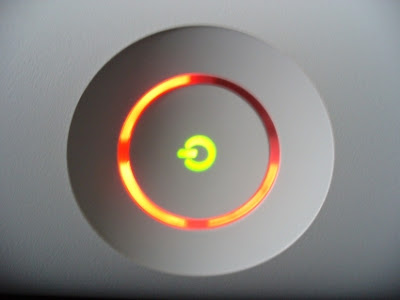Microsoft is Confident Xbox One Won't Have Quality Issues
Well, there's no guarantee, but the same team that worked on the "Trinity" Xbox 360 Slim unit is behind the hardware in Xbox One, and that's a good thing.
Get Tom's Hardware's best news and in-depth reviews, straight to your inbox.
You are now subscribed
Your newsletter sign-up was successful
I guess I've been lucky: I didn't buy an Xbox 360 until I signed on with the original Tom's Games back in 2007, and so far I have the same unit, red-ring free. It doesn't seem to like Minecraft: Xbox 360 Edition in split-screen mode, but I have no hardware horror stories to tell. Unfortunately, I can't speak for everyone. The Red Ring of Death is not something consumers want to see or hear about, ever, and neither does Microsoft, especially in the next-generation hardware.
Microsoft Studios boss Phil Spencer told Edge Magazine that the team that built the latest Xbox 360 Slim "Trinity" model is the same team behind the new Xbox One. He said this team's work so far has inspired confidence in the reliability and quality of the new console. Of course, he's going to say that given a new product is about to launch later this year. But the failure rate with Trinity seems minute, if at all, compared to the early days.
"The last Xbox was Trinity [Xbox 360 Slim] and our success rate on Trinity was very high," Spencer told the magazine. "We learned a ton from the 360 launch and we took care of our customers with the extended warranty, but I think Trinity is telling."
Spenser recently told the magazine that Xbox One isn't backwards compatible because Microsoft wanted to be in a "forward-looking position," to release a device that will last for the next ten years. Because of this, backwards compatibility had to be removed from the feature list. Still, that doesn't mean Xbox 360 games can't be streamed in the future. If Sony can do it, Microsoft could presumably do it as well.
He also revealed a little insight into the console's DRM, stating that games will be "locked" to each owners' profile. Of course, that could seriously affect the secondary used games market, and he admitted that Microsoft will release specifics on how it will address this market at a later date.
"We think, actually, that having the content that’s yours go with you is an important thing," he told the magazine. "You could have multiple Xbox Ones, your content is yours on every one of them, and it doesn’t require that you carry discs back and forth. The disc becomes a means of distributing the bits back and forth but the content is locked to you."
"I think the whole idea of a secondary market is important and it’ll be important in the next generation and we’ve designed [Xbox One] with that in mind from the beginning," he added.
Get Tom's Hardware's best news and in-depth reviews, straight to your inbox.

Kevin Parrish has over a decade of experience as a writer, editor, and product tester. His work focused on computer hardware, networking equipment, smartphones, tablets, gaming consoles, and other internet-connected devices. His work has appeared in Tom's Hardware, Tom's Guide, Maximum PC, Digital Trends, Android Authority, How-To Geek, Lifewire, and others.
-
Innocent_Bystander-1312890 No, he's going to say: "this baby's gonna shit itself into a brick the first time you turn it on..." On second thought, after this reveal, such a comment wouldn't have surprised me...Reply
IB -
nevilence I only ever encountered the Red Ring of Death once, and thats having owned 3 xbox 360s at different points. Still 1-3 for one person is a pretty shit hit rate.Reply -
Ha I bet this won't be the case...Btw isn't new tech supposed to get thinner lighter smaller, but this Xbox one looks bigger bulkier like an old VCR whats up with that??Reply
-
dragonsqrrl The cooling is looking good:Reply
http://images.anandtech.com/doci/6972/20130514-XBOX-ONE-TEARDOWN-014.jpg
Is that sufficient? I guess only time will tell, but it looks pretty beefy. -
hasten The games "locked" to account news (if you can call it news at this point) is a little distressing. I wonder what the effect will be on the bottom line... In the PC gaming world this is commonplace, but is justifiable with the reduced prices and common sales. I'd be amazed if MS followed a similar business model, if they even could. Consoles have always subsidized the R & D and hardware costs with accessories and licensing costs.Reply
Has Sony announced if they are following suit? I haven't read much into the PS4 yet. -
BringMeAnother I know I'll get lots of hate for this, but I'd rather they take the steam model with an option to go completely digital. I'd see that as an advantage outweighing not being able to resell my old games. As long as they have Steam like sales.Reply -
bobjones003 Microsoft my be confident, but that is not saying lot. Like you would say anything else. That would be like saying are product really does not work. That will sell lot of unitsReply
-
There will be some duds. My 360 slim had E74 when I turned it on for the 1st time, but I could see production was quick when it 1st came out. My old Xbox 360 died when the slim went on sale. Conspiracy I say :pReply
-
Ninjamonkeh Over this past week I have read many articles from many different sites with interviews with different Microsoft Representatives. Every article leaves me feeling as if they are lying to me. Alot of them contradict each other. "No its not online always" "with our cloud technology we can offload processing from the system to the cloud"(IE: gotta be connected to play. I think I'm just gonna upgrade my computer and hope ps4 and xbox ports are cost effective for companies to do.Reply
